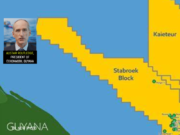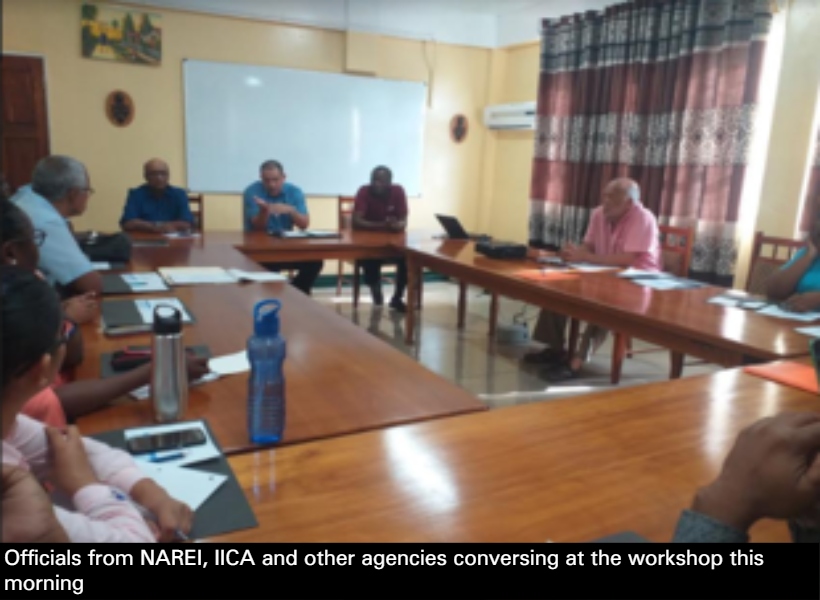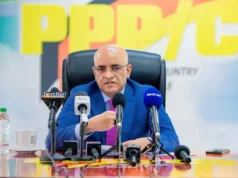Guyana is among six Caribbean territories benefiting from a waste management pilot project that is designed to create economic opportunities from organic waste.
The Guyana leg is a partnership between the National Agricultural Research and Extension Institute (NAREI) and the Inter-American Institute for Cooperation on Agriculture (IICA).
The pilot project is being implemented in two-phases and is facilitated by Dr. Abimbola Abiola, Technical Specialist, IICA. The first phase of the project is a two-day workshop “Creating Economic Opportunities for the Organic Waste Management Sector through the Adoption of Bio-economic Models in the Caribbean,” which commenced earlier today.
The workshop is being conducted in NAREI’s Boardroom, Mon Repos. Participating agencies were selected from both private and public sectors. They include Demerara Distillers Limited (DDL), NAREI, Environmental Protection Agency (EPA) and the Guyana Development Livestock Authority (GLDA).
At the end of the workshop, participants will be responsible for several
projects. They are expected to present their findings in April 2020 when the second phase of the project will commence.
According to Dr. Oudho Homenuath, Chief Executive Officer of NAREI, this project, which would assist in eliminating greenhouse gases, complements the Institute’s research in soil management.
“Soil health is important so we have been doing various research in this regard. While we would have conducted some studies in composting, emphasis is being placed on vermicomposting. We have been able to transfer this technology to the farming communities. Another area we are looking at is the utilization of coconut waste. We have had successes with the use of coconut coir and cocopeat,” Dr. Homenauth said.
Wilmot Garnett, Country Representative of IICA to Guyana, encouraged participants to consider the financial aspects of their projects since agriculture is business. He explained that the findings would help to determine whether a project would be financially feasible in one area versus another.
Garnett related that Belize, Jamaica, St. Lucia, Trinidad & Tobago, and The Bahamas are also beneficiaries of this pilot project. However, the project will be rolled out to other Caribbean territories.
“IICA through its programmes of Bio-economy and Production Development; and Climate Change, Natural Resources and Management of Production Risks, has identified the potential solution of developing a model based on composting technology (in its first stage). This model promotes the development of complex interlinkages between actors in the value chain, such as those in the renowned industrial symbiosis projects,” the country representative said.











